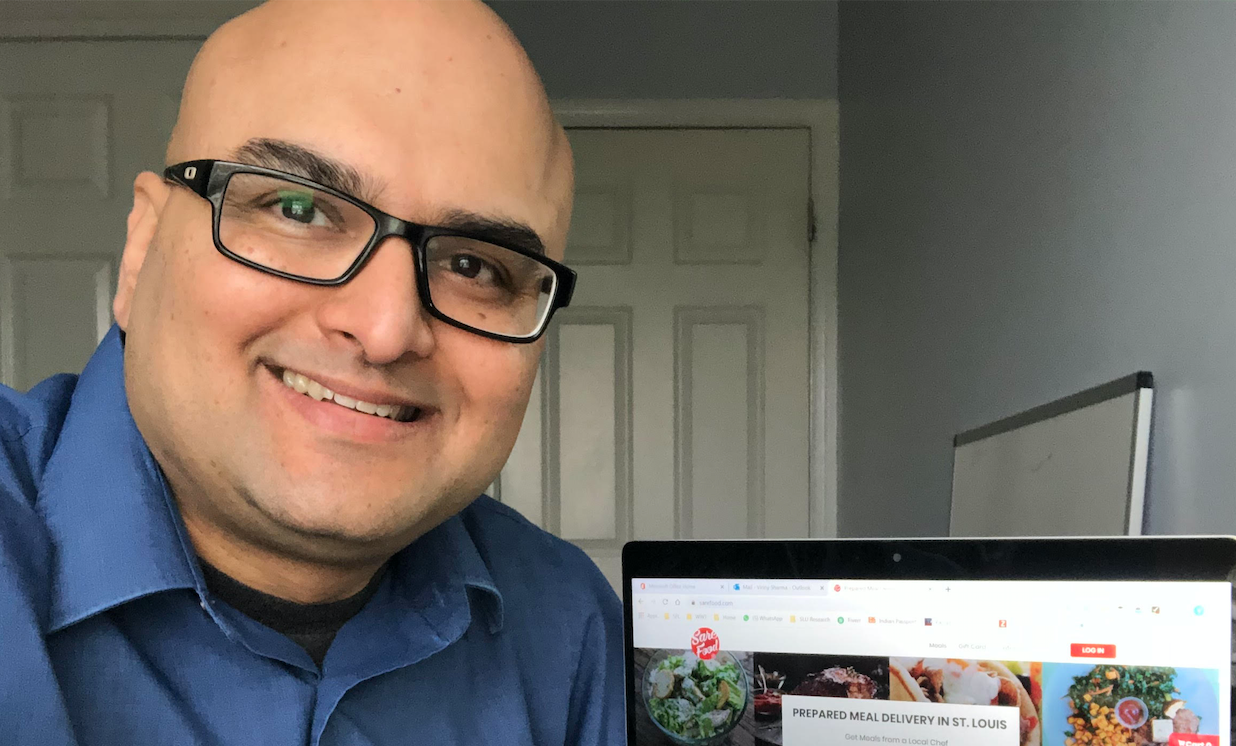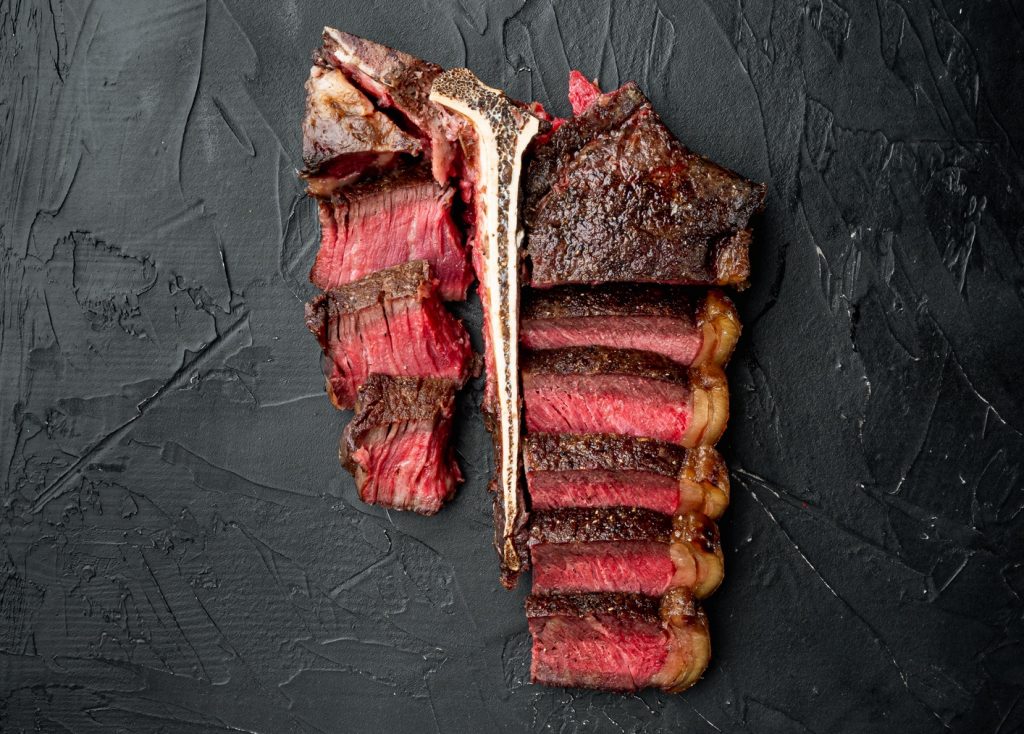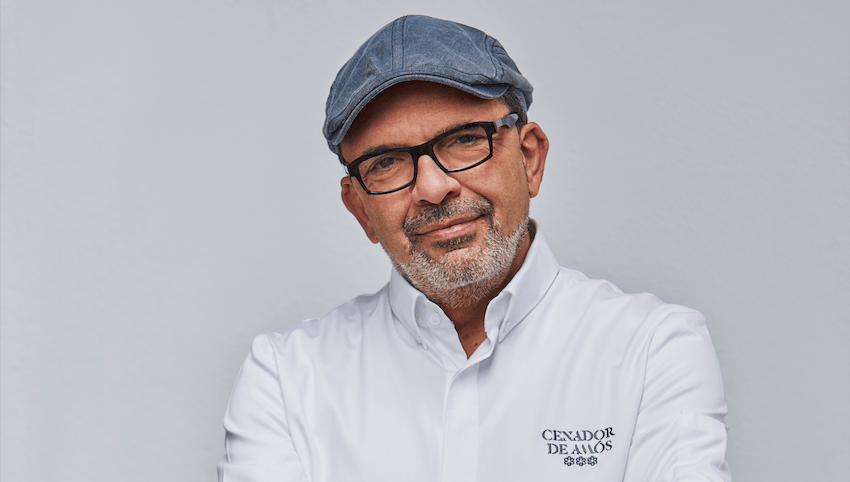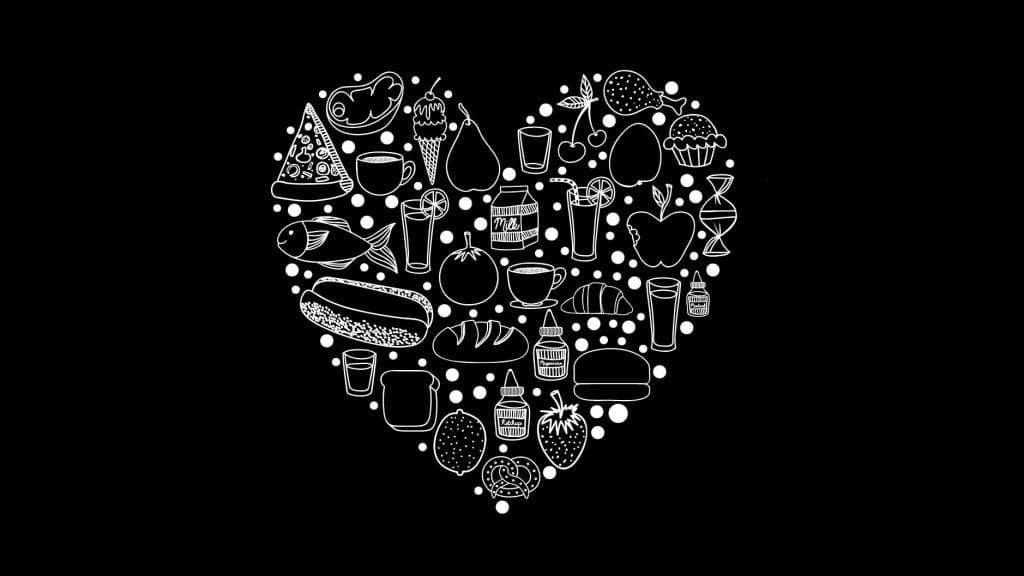
As in other states and cities across the US, restaurants and diners in St Louis, MS, have had to adjust to a very different way of interacting. With foodservice operators shuttered, many have pivoted to delivery or take-out.
For chef Vinny Sharma, the Covid-19 crisis has given his company SareFood, a meal delivery service that works with local St Louis chefs, the chance to help provide a local service to customers while helping out-of-work chefs.
It’s a simple set-up: SareFood connects customers with local chefs for home delivery. Diners visit the website to select a chef based on their preferences. Meals can be scheduled weekly for no-contact delivery and customized to cater to specific dietary needs. All customers have to do is order, reheat, and serve. Food is prepared the same day it is delivered.
The chefs who join the SareFood roster get a full 70% of the proceeds from their orders; the remaining 30% goes to support SareFood administrative staff who match customers to chefs and coordinate no-contact delivery.
Sharma launched SareFood in 2017. “As a chef, I wanted to create a marketplace to make and sell the kind of food that I would prepare for my own family and share that experience and opportunity with others in my industry,” says Sharma.
“I felt there was a need and desire to bring local talents and businesses together to help each other succeed. The company was born to help chefs increase their income in a fun and fulfilling way and this was really the driving idea behind this enterprise,” he says.
Serving the community
The potential impact of the Covid-19 crisis became evident as far back as January and February when Sharma says the restaurant business in St. Louis was already taking some pretty devastating blows. “In early March we started seeing a huge surge in dinner reservation cancellations for full-service restaurants,” he recalls.
“This was around the time when I started having conversations with key stakeholders about how my business could step up and help the displaced chefs who were losing income fast.” A stay-at-home order was issued on April 6 in Missouri, but Sharma thinks the community felt the hit long before as tension and fear started to build.
He says the St Louis dining scene – pre-pandemic – had a vibrant food culture. “Depending on where you are in the city, you’ll likely find a mix of traditional favorites like toasted ravioli, pizza, and barbecue and innovative cuisine infused with new flavors and flair,” he says.
“I love the St. Louis food scene and culture; from Clayton’s nationally-renowned fine dining scene to Tower Grove’s colorful and diverse restaurant neighborhoods, there really is something for everyone in this town.”
It is also a great place to be a chef due to its collaborative community. “Restaurateurs are very supportive of each other’s success and the community here really values local flavor and unique experiences, which means the culinary scene to think outside of the box and continually evolve and innovate,” he says.
The purpose of SareFood is to connect local chefs with local customers for prepared meals delivery – local chefs and food-providers can earn by providing their services to customers who in turn get fresh, tasty and varied food prepared by local chefs. Since launch, it has grown by leaps and bounds, adding a number of chefs who specialize in all different types of cuisine.
“Our focus has always been people and our aim is to promote local businesses and chefs, and encourage food entrepreneurs who dream of starting their own business. We are committed to improving our platform for chefs to excel and we continue to bring about a positive influence in the food culture of the local community,” says Sharma.
Despite the catastrophic impact of the crisis, he thinks some good can come out of the challenges. “I believe as tragic as this crisis is, it has given chefs the opportunity to discover the freedom and flexibility of running their own businesses and has opened a door to our community members who love good food and want to share their appreciation and support with the city they love,” he says.
Change for all
As far as the wider dining landscape is concerned, Sharma believes we are in for radical change. “The restaurant industry has had to pivot and plan for a situation they could have never anticipated and therefore, I believe the market will face a significant transformation,” he says.
“The pandemic has forced restaurants who have been more traditional in their operations and marketing to think creatively and utilize new technologies to elevate the customer experience and fuel revenue. Once this has passed, I believe the pressure to innovate will be greater than it ever has been before.
In other words, operators can no longer continue to do things the same as they have always done. “Forward-thinking restaurants will survive and those are reluctant to change will perish,” he says.
The change is there for customers too, with many now realizing how heavily we rely on restaurants and prepared food. “Going out to eat makes up such a huge part of our social lives – from family dinners to business lunches,” says Sharma. “I believe after this is all over, consumers will be more inclined to support local businesses and invest more in those experiences they may have taken for granted.”
He thinks it will be a while before restaurants in Missouri can go back to anything resembling more normality. “Reopening will require a significant amount of managerial and operational work to make sure safety and security are prioritized and in accordance with government guidelines.” he says.
All operators will be forced to think more like a start-up. “For entrepreneurs, this is nothing new, but for businesses who are now pivoting the full 360, this pandemic could reshape their foundations for good; this crisis has pushed us to think differently about the way we operate. It’s not just the food industry,” he explains.
In St. Louis, those who are now out of a job will need to turn to other streams of revenue and for chefs the option to join SareFood is there. “Other foodservice brands in the community and around the world are hiring at exponential rates to meet the rising delivery and takeout needs,” says Sharma.
“The loss of income has been staggering and for some, they may not fully recover financially, but I believe many of our restaurants and chefs have remained resilient through community support, scrappy creativity and unwavering optimism.”
Tina Nielsen




